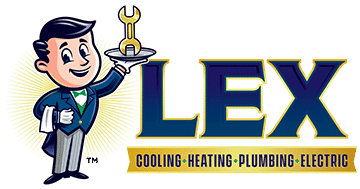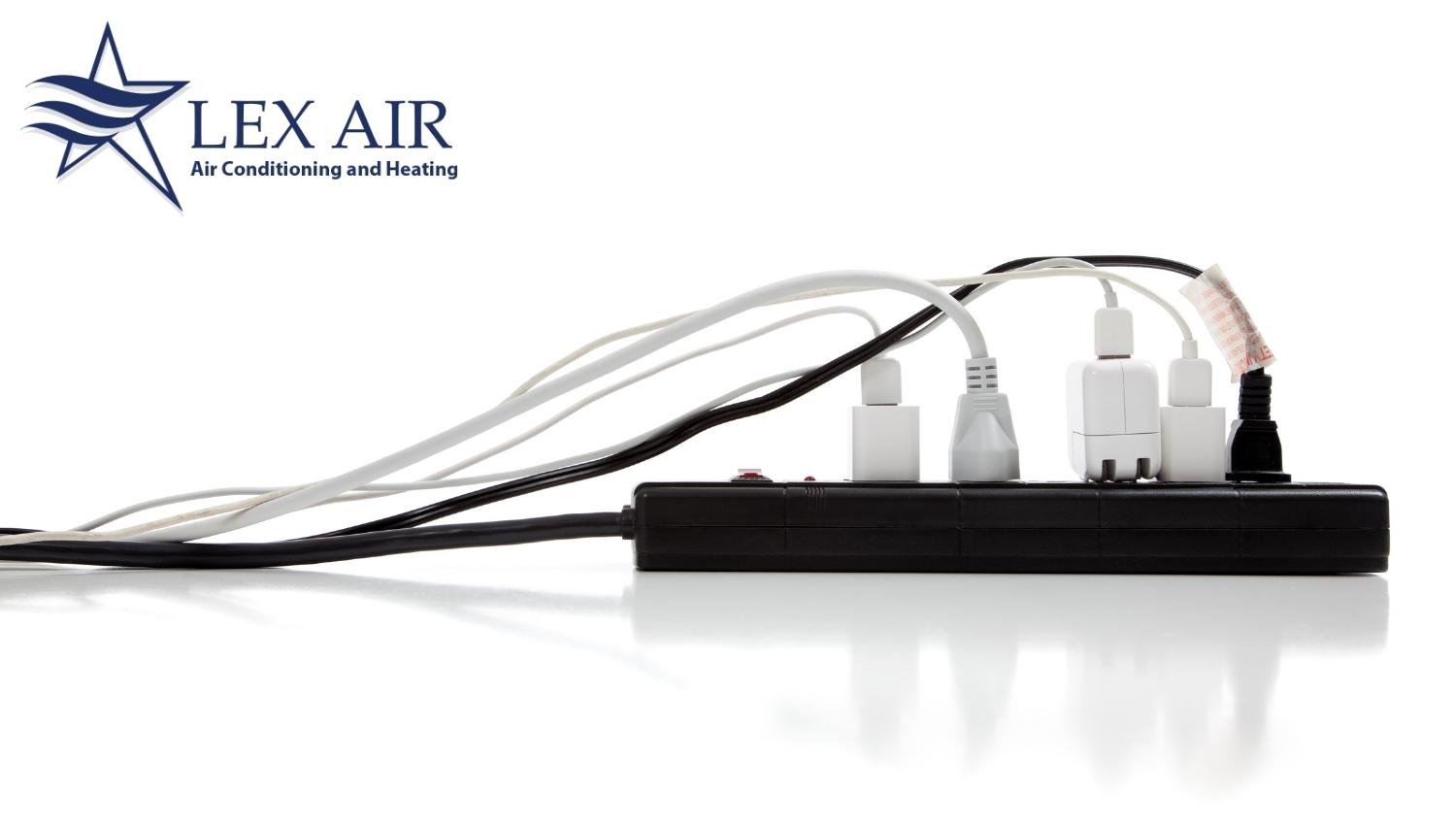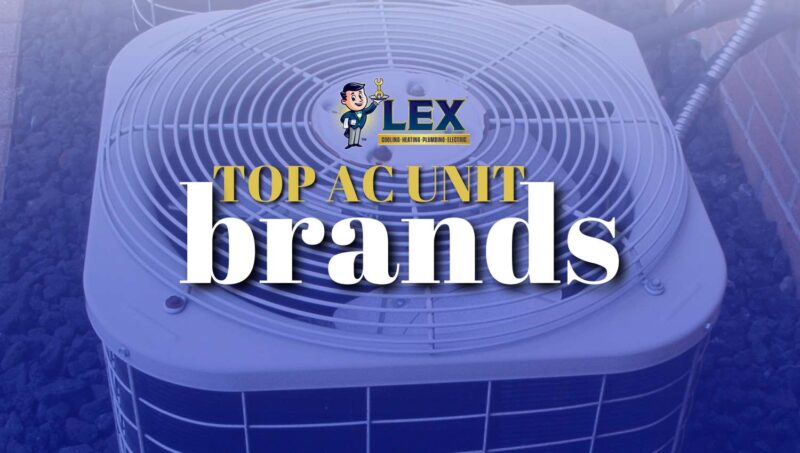As a homeowner, you probably have multiple devices plugged in right now, some of which are worth a good chunk of change. These can include your air conditioning unit, water heater, refrigerator, computer, TV, and washing machine. While you may want to extend the life of these appliances, are you protecting them from power surges?
In this article, we’ll go into depth about how surge protectors work, how they are different from power strips, and how surge protectors can greatly protect your most valuable electronic devices, like your HVAC system.
If your AC unit has been damaged as a result of a power surge, the Carrollton air conditioning experts at Lex Air Conditioning and Heating are here to help. We provide the residents of Carrollton and the surrounding areas with expert HVAC repair, replacement, and maintenance services, all at a competitive price. Call us today at (972) 217-8955 to learn more about what we can do for you and your home or business.
What is a Power Surge?
An electrical power surge is a sudden spike in voltage, current, or power. This surge is temporary, and can occur in less than a millionth of a second, but can range in intensity depending on the cause of the surge. Some of the causes include lightning strikes, faulty wiring, and overloaded circuits.
Electronic devices are only designed to handle a certain amount of electrical power, so if the circuits are forced to take in more electricity than they can handle, they can break. Things like surge protectors do exactly as the name suggests: they protect electronic devices from power surges. Certain devices have built-in surge protection, but this built-in protection will often only protect against small power spikes, not full surges.
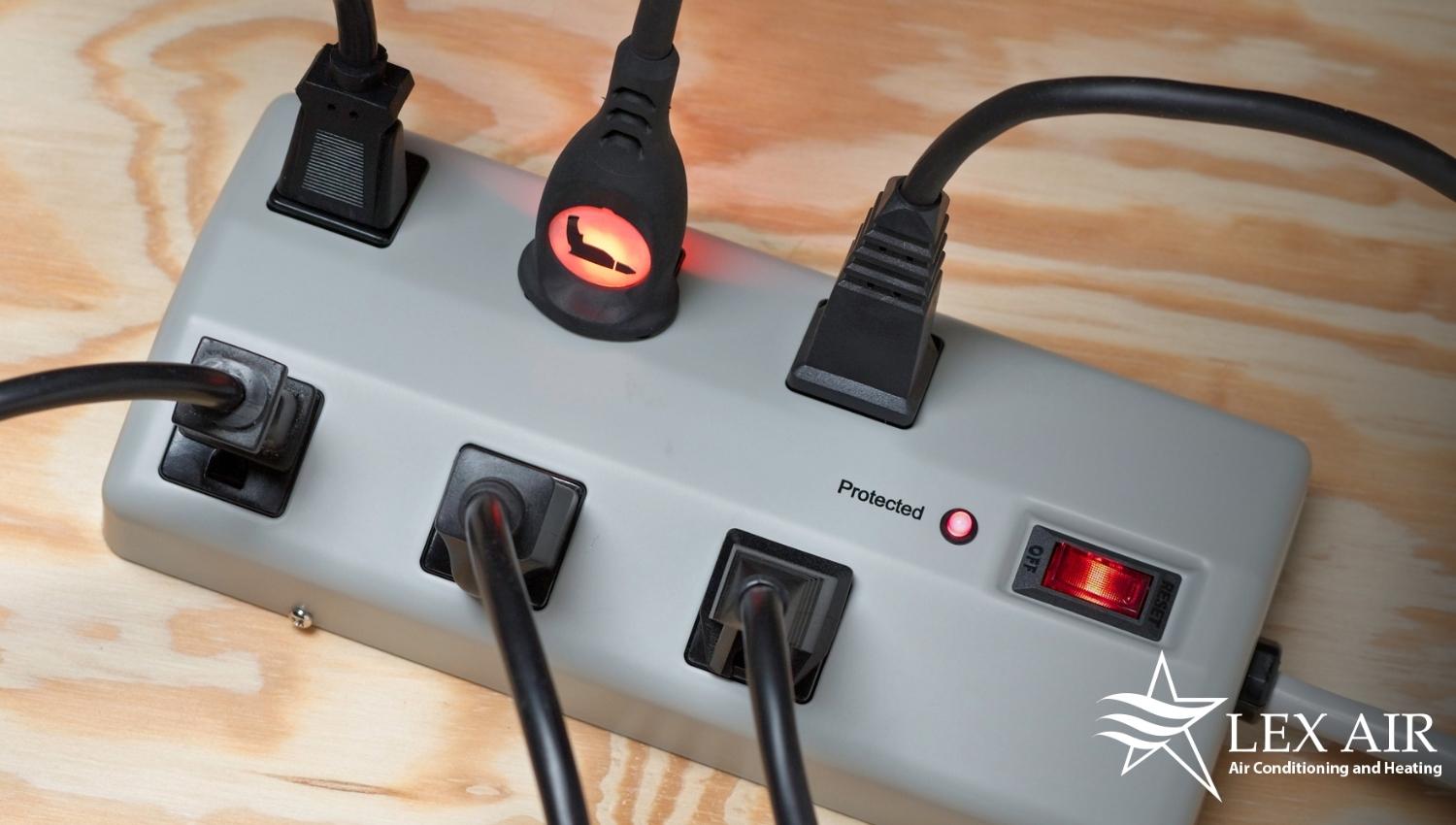
How Do Surge Protectors Protect Against Power Surges?
A surge protector, or transient voltage surge suppressor, works by diverting any excess electrical energy away from electrical and electronic equipment. Most do this by diverting current and voltage spikes into the outlet’s grounding wire through the use of a metal oxide varistor (MOV). The MOV consists of metal oxide that is joined to the power line and grounding line by two semiconductors.
If the energy coming into the surge protection device is too high, one semiconductor diverts the excess electricity to the grounding wire, while the other semiconductor supplies the connected electronic devices with an acceptable amount of power.
Types of Surge Protectors
There are different types of surge protectors, including:
- Whole-house surge protectors;
- Surge protector strips; and
- Wall mount surge protectors.
A whole-house surge protector is a surge protection device that connects directly to your home’s electrical panel. These devices can protect a home from a 40,000 amp surge, but certain sensitive electronics may require additional protection through the use of a “plug-in” surge protector. Surge protector strips and wall mount surge protectors plug directly into the home’s wall outlets, allowing you to plug your devices directly into the surge protector.
Surge protector strips look and function like power strips, but unlike power strips, they actually help protect your sensitive electronics from power surges. Some have battery backups, which allow certain devices to have an uninterruptible power supply, even during a temporary outage.
A wall mount surge protector is designed to help protect specific devices from power surges and will usually have fewer open plugs than a surge protector strip.
HVAC Surge Protector
An HVAC surge protector is designed to protect your HVAC system from power surges. Your air conditioning system is likely one of the most expensive electrical appliances in your home, so protecting it is important. Having a surge protection device specifically for your air conditioner can help save you hundreds or even thousands of dollars on air conditioning repairs and can also help extend the life of your system.
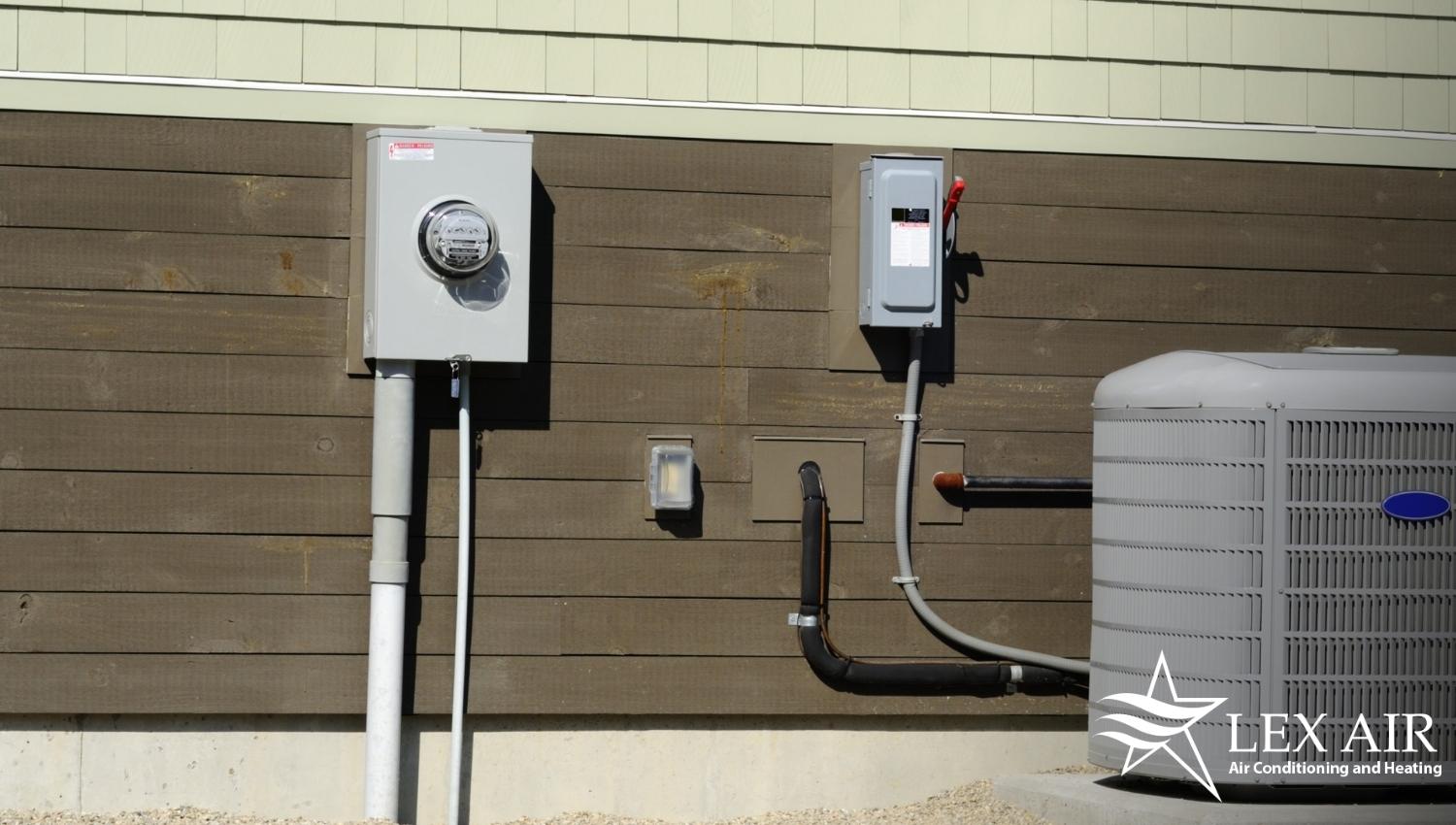
Are Surge Protectors Necessary?
While they are not necessary, surge protectors are extremely important, especially if you are interested in keeping your electronic equipment and devices functioning for longer. Many surge protectors are very affordable and can help protect multiple connected devices from power spikes and surges, protecting the circuits and capacitors from being overloaded.
What is the Advantage of a Surge Protector Over a Power Strip?
While both power strips and surge protectors allow you to plug multiple devices into one outlet, surge protectors are the only ones that will protect your devices from a power surge. A power strip simply allows you to plug multiple devices into a single wall outlet. Some surge protectors, like surge protector strips, also allow you to plug multiple devices into a single outlet, but they actually have the capability to protect your devices from power surges.
Pros and Cons of Whole-House Surge Protector
A whole-house surge protector can be a great investment for your home, but it can also have its downsides. Whole house surge protectors are directly connected to your home’s electrical box, meaning they can protect everything connected to your home’s power supply from electrical surges. This can also provide you with greater peace of mind knowing your whole home is protected.
One downside to it is that it typically costs more than a plug-in surge protector and requires an electrician or electrical contractor to install it. Another drawback is that it doesn’t necessarily protect your home appliances from internal surges, which can occur when high-voltage appliances cycle on and off. Weighing these pros and cons can help you make the best decision for you and your home.
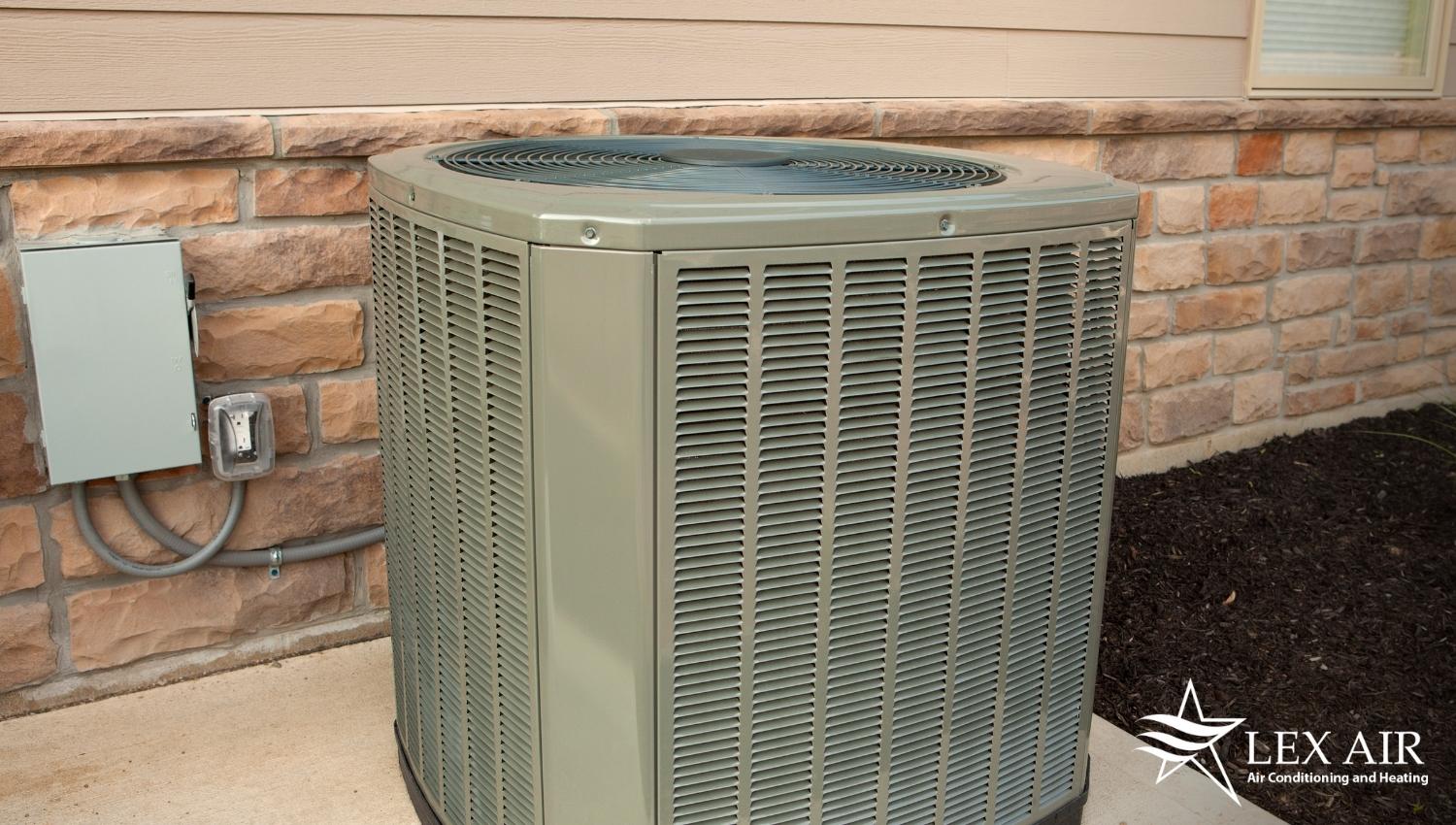
How Much Surge Protection Do I Need?
The amount of surge protection you need depends on what electrical device or equipment you are looking to protect.
Surge Protector Joules
When looking at surge protectors, you may notice a joule rating. This indicates how much energy the surge protector can handle before it fails. The higher the joules, the greater the protection.
How Many Joules Should a Surge Protector Have?
Most surge protectors have ratings of over 1,000 to 2,000 joules, which will help protect certain electrical devices like office appliances, cell phones, and power tools. If you want power surge protection for your gaming console or desktop computer, you may want to consider finding a surge protector with a rating higher than 2,000 joules. That will provide you with adequate protection against internal and external surges.
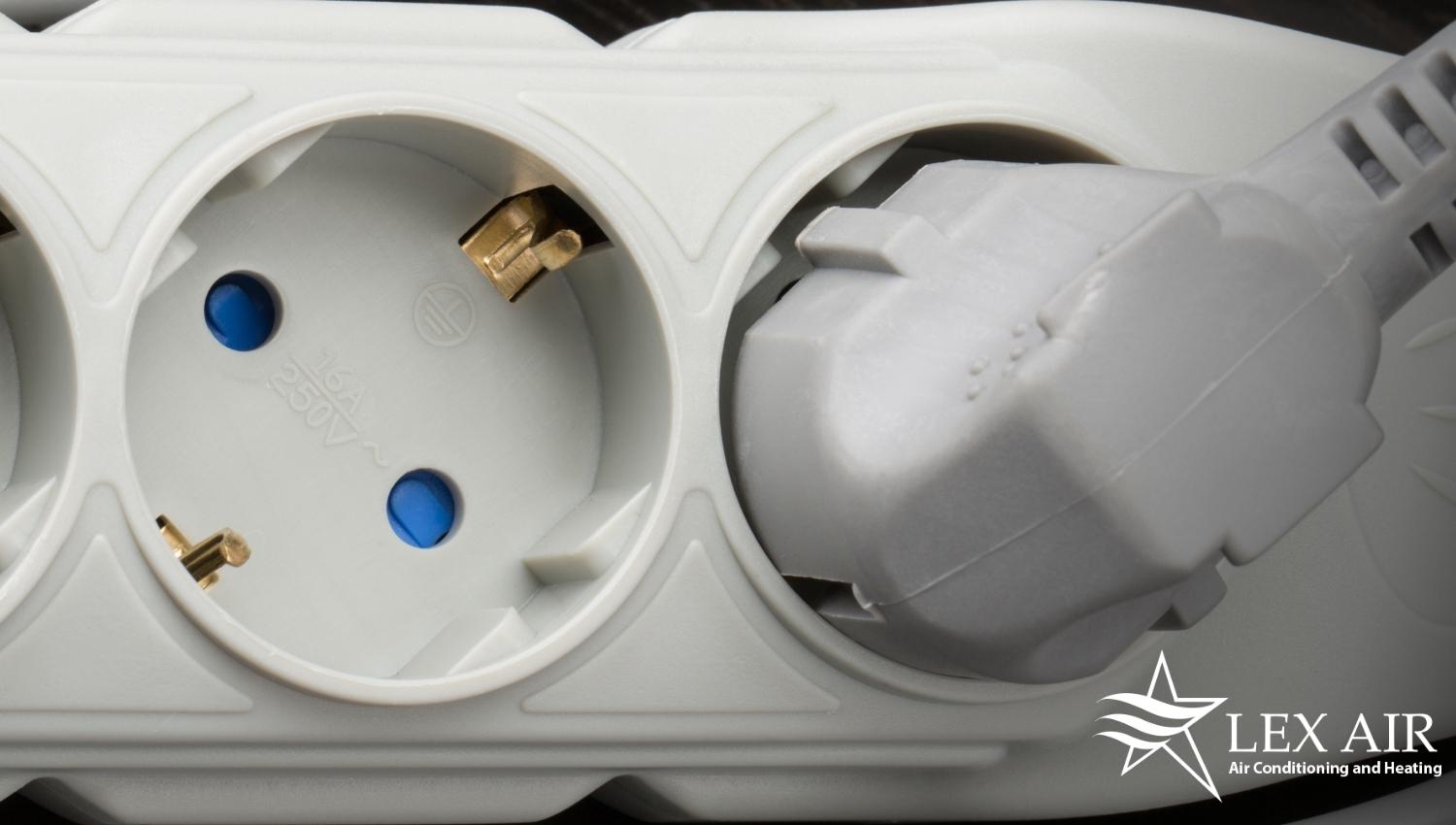
Do I Need a Surge Protector?
Yes, even a small power surge can cause serious damage to your HVAC system, and a strong power surge could damage your entire system beyond repair. A good surge protector can help prevent you from needing an AC installation before you should.
AC Surge Protector
An AC surge protector will protect your air conditioner from power surges, which can preserve your AC unit’s electrical system from damage. You can find air conditioner surge protectors for anywhere between $60 and $120.
Mini Split Surge Protector
A mini-split surge protector will protect your ductless mini-split from power spikes and surges. You can find these for around $30 to $85 from online retailers and hardware stores.
Furnace Surge Protector
Just like with your AC system, you can install a surge protector for your home’s heating system. Furnace surge protectors will run you about the same as AC surge protectors, which is anywhere between $60 and $120.
Heat Pump Surge Protector
Protecting your home’s heat pump is essential, which is why we recommend you have a heat pump surge protector. They cost the same as AC and furnace surge protectors, and you can find some for as low as $60.
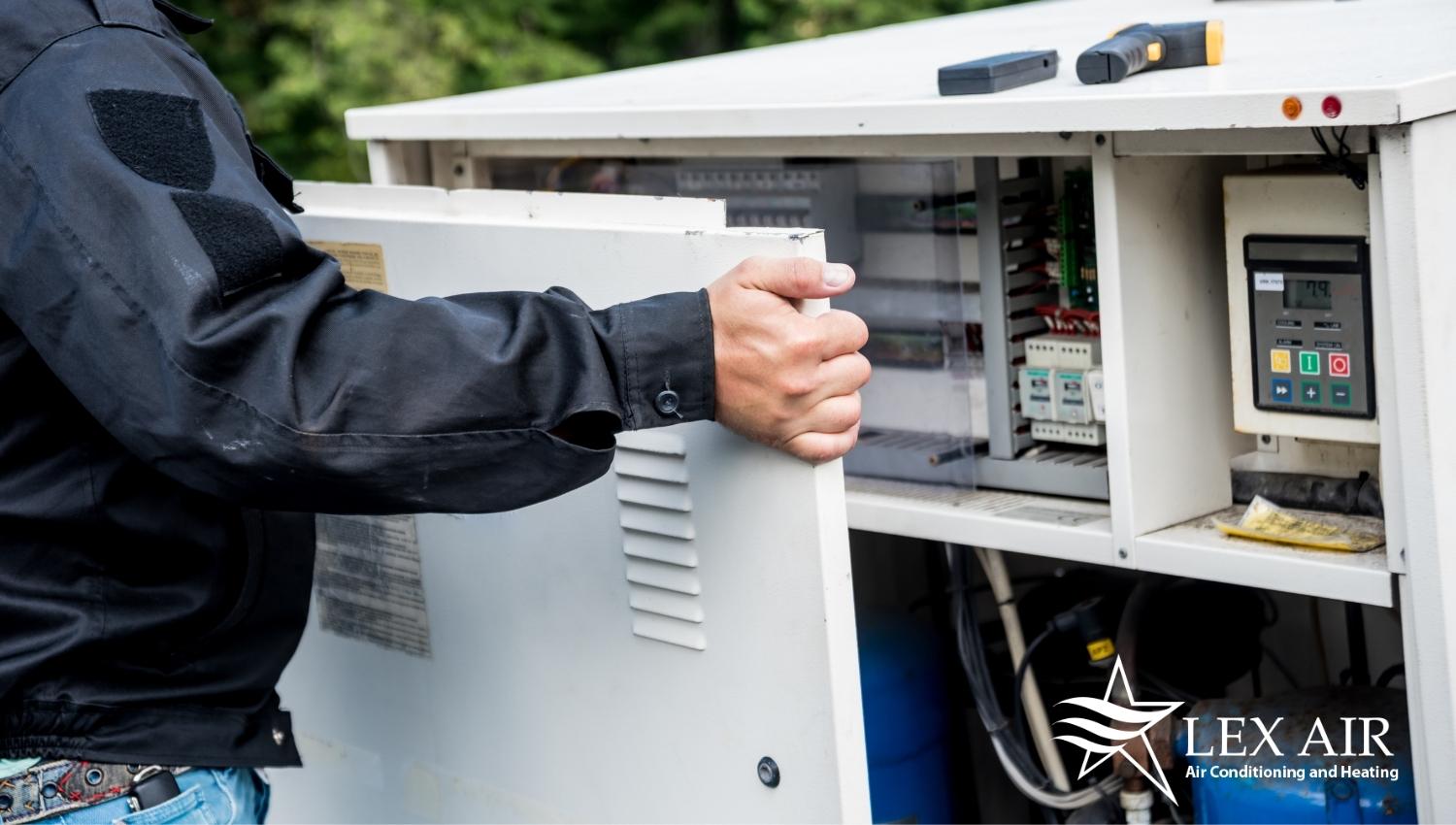
To Learn More About Surge Protectors for HVAC Units, Call Lex Air Conditioning and Heating Today!
HVAC problems can cause homeowners to suffer from a great deal of unnecessary stress. If your system has been damaged due to a lightning strike or internal power surge, you need a team of HVAC professionals who can help.
Our experts at Lex Air Conditioning and Heating can repair or replace your system, and can also help you find surge protection solutions to better protect your AC unit from unexpected surges. We can also provide you with routine HVAC maintenance services to ensure your air conditioner is working properly, which can help prevent system breakdowns.
Ready to get started? Call us at 972-217-8955 or contact us online to learn more about what we can do for you or to schedule repairs with us.
